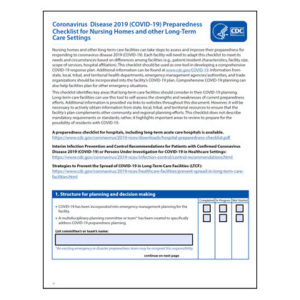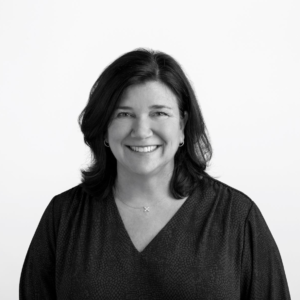Leaders of Tomorrow: Bernadette Ledesma, MPH, LNHA
 Even in paradise, people grow old, frail and in need of care to keep add quality to their days. For the past 15 years, Bernadette Ledesma, MPH, LNHA, has been the administrator at Pearl City Nursing Home, a 122-bed Medicare/Medicaid-certified skilled nursing facility in Pearl City, Hawaii. Since childhood she has held a special place in her heart for the elderly.
Even in paradise, people grow old, frail and in need of care to keep add quality to their days. For the past 15 years, Bernadette Ledesma, MPH, LNHA, has been the administrator at Pearl City Nursing Home, a 122-bed Medicare/Medicaid-certified skilled nursing facility in Pearl City, Hawaii. Since childhood she has held a special place in her heart for the elderly.
“My great-grandmother came from the Philippines to Hawaii. In the 1930s, older women took the lead as caregivers—especially in adapting to life in a foreign country,” Ledesma says . Hawaii is a composite of many cultures: native Hawaiian, Filipino, Japanese, Chinese, Samoan and Micronesian, to name a few. “In most of these cultures, the elders are significant family members and multigenerational family living arrangements were common,” she adds.
After earning her master’s degree in public health, Ledesma became a healthcare trainer at Kuakini Medical Center and was promoted to supervisor at a 100-bed care home facility. She transitioned this wealth of experience in long-term care as Pearl City Nursing Home’s administrator. Its multicultural population can present some challenges, however.
“It makes for interesting work. We have to enlist families to help staff understand the customs of our residents. If language presents a challenge, we ask families to provide a directory of words that staff can use to communicate,” she explains. Staff must be prepared to deal with family values regarding healthcare and end-of-life scenarios. “Some cultures insist that everything be done to preserve life regardless of the futility of these efforts,” she adds. Bringing better targeted care to her multicultural residents, she feels, is her biggest achievement.
Pearl City Nursing Home employs a staff of more than 200, with the majority of the nurses being Filipino. “In the Philippines, many were licensed nurses, and they are working here to become accustomed to English and use their nursing home experience as a stepping stone to passing the American licensing exam,” Ledesma says.
Cultur change is evident at Pearl City. “The Aloha Spirit is the way we carry out our day-to-day care,” Ledesma explains. For native Hawaiians, “aloha” is a lifestyle and part of their culture. It embodies concepts like patience, honesty, caring and teamwork. “Aloha Spirit is not much different from what long-term care is all about,” she says. It’s a person-centered philosophy that ensures residents receive a caring respect for their individuality.
“Our residents with Alzheimer’s or other dementia benefit through a multipronged approach, involving not only the resident but staff, families and clinical providers in care planning to design an approach that is a balance of human touch with chemical intervention as a last resort,” Ledesma says.
Preventing readmissions and infection prevention is also high on the list of missions at Pearl City. “We need to really work with acute care to make sure that we know everything possible about the new resident. We continually probe to find out everything we can about the resident’s condition to care for that resident and keep other residents safe.”
All of Ledesma’s work is not confined to the nursing home building. She is out in the community and working with other facilities to improve care for seniors. “Most administrators belong to the Healthcare Association of Hawaii (HAH) so we have a lot of opportunity to share, collaborate and support each other,” says Ledesma, who is also a member of the HAH Government Relations Committee.
Hawaii is one of a handful of states where infection prevention reporting is mandated. “Right now, it’s in the acute care area, but I believe it will be required of long-term care soon,” she says. In preparation for this eventuality, Pearl City has used an infection preventionist to enable nurse to submit appropriate data. “It helps to understand how important it is to make sure your case-mix is done properly, so infection is contained,” she remarks.
“Long-term care is a work in progress,” Ledesma notes. And she should know. She’s been involved with the Minimum Data Set (MDS) regulations since they began in 1990 through the current MDS 3.0 version and has continued to keep informed and train her nurses in its requirements. “Basically, the challenge is to adapt to the many changes and images of long-term care while staying focused on the resident,” she reflects.
With her many years of involvement in the geriatric field—15 at Pearl City and 20 years at Kaukini Medical Center—Ledesma quips, “I certainly am aging in place, too.”

Sandra Hoban was on I Advance Senior Care / Long-Term Living’s editorial staff for 17 years. She is one of the country’s longest-serving senior care journalists. Before joining Long-Term Living, she was a member of the promotions department at Advanstar Communications. In addition to her editorial experience, Sandi has served past roles in print and broadcast advertising as a traffic and talent coordinator.
Related Articles
Topics: Alzheimer's/Dementia , Articles , Clinical , Executive Leadership , Leadership , Staffing











